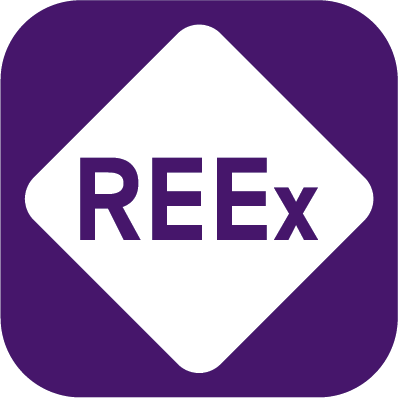robertovanderb
About robertovanderb
The Rise of Private Jet Companies: A Case Study On Luxury Air Travel
Prior to now decade, the private jet industry has witnessed vital growth, pushed by an increase in wealth, the demand for customized journey experiences, and developments in aviation know-how. This case study explores the evolution of private jet companies, their enterprise fashions, and the factors contributing to their success.
Historic Context
The private aviation sector has a rich history courting back to the early twentieth century, but it surely wasn’t till the 1960s that private jets started to realize popularity. The introduction of the Learjet 23 in 1964 marked a turning level, as it made private air travel extra accessible to affluent individuals and corporations. Over the years, the industry has expanded, with numerous companies entering the market, providing a spread of providers from fractional ownership to on-demand charter flights.
Enterprise Models
Private jet companies operate underneath various business fashions, catering to totally different customer wants. The first models include:
- Charter Services: Companies like NetJets and VistaJet supply on-demand charter flights, allowing prospects to book a jet for a specific trip with out the dedication of ownership. This model appeals to those who require flexibility and convenience.
- Fractional Possession: This model, pioneered by NetJets, allows prospects to purchase a share of a jet, giving them access to a selected number of flight hours per yr. If you enjoyed this information and you would certainly like to obtain even more information relating to international private jets charter company kindly visit the web-page. Fractional possession is enticing to individuals and businesses that fly steadily but don’t want the total duty of owning an aircraft.
- Jet Cards: Corporations resembling Sentient Jet and Wheels Up provide jet card applications, the place prospects pre-buy flight hours at a set fee. This model supplies a stability between flexibility and cost predictability.
- Full Possession: Some excessive-net-worth individuals and firms go for full possession of a private jet, offering full control over their journey schedule. This model is often accompanied by excessive operational prices and duties.
Market Growth and Traits
The private jet market has experienced a surge in demand, notably within the wake of the COVID-19 pandemic. As commercial airways faced disruptions and well being concerns, many travelers turned to private aviation for safer and more convenient travel options. In accordance with business studies, the global private jet market was valued at approximately $24 billion in 2021 and is projected to develop at a compound annual progress rate (CAGR) of 5.3% from 2022 to 2030.
Several factors have contributed to this progress:
- Increased Wealth: The rise of extremely-excessive-web-price individuals (UHNWI) and the expansion of the center class in emerging markets have led to a larger buyer base for private jet companies.
- Technological Developments: Innovations in aircraft design, safety, and fuel effectivity have made private jets more interesting. Newer fashions supply enhanced consolation, longer ranges, and lower operational prices.
- Personalized Experiences: Private jet companies are increasingly focusing on offering tailor-made experiences for his or her clients. From gourmet catering to bespoke itineraries, the emphasis on luxury and personalization has become a key differentiator out there.
Environmental Concerns
Because the private jet business grows, so does scrutiny relating to its environmental impact. Private jets are sometimes criticized for his or her carbon footprint, which may be considerably increased per passenger compared to industrial airlines. In response, a number of companies are taking steps to mitigate their environmental impression:
- Sustainable Aviation Fuel (SAF): Many private jet companies are exploring the usage of SAF, which might reduce greenhouse gas emissions by up to 80% in comparison with conventional jet gasoline. Companies like NetJets have dedicated to rising their use of SAF in their operations.
- Carbon Offsetting: Some private jet operators offer carbon offset applications, allowing customers to compensate for his or her flight emissions by investing in environmental initiatives.
- Fleet Modernization: Newer aircraft fashions are designed with improved gasoline efficiency and decrease emissions. Corporations are investing in modern fleets to align with sustainability goals.
Competitive Panorama
The private jet trade is extremely aggressive, with numerous gamers vying for market share. Main firms embody NetJets, VistaJet, Flexjet, and Wheels Up, each offering unique providers and pricing constructions. New entrants, resembling air taxi companies and revolutionary start-ups, are also emerging, leveraging technology to disrupt traditional models.
The aggressive landscape is additional influenced by:
- Pricing Methods: Companies must stability competitive pricing with the luxury experience anticipated by clients. Dynamic pricing fashions and clear charge buildings are becoming increasingly essential.
- Customer Loyalty Programs: Many private jet companies are implementing loyalty packages to retain purchasers and encourage repeat enterprise. These packages often offer unique benefits, such as discounted rates and entry to special events.
- Technological Integration: Using know-how in booking and managing flights is becoming important. Companies are investing in consumer-pleasant apps and platforms to enhance the client experience and streamline operations.
Future Outlook
The future of the private jet business appears promising, with continued progress anticipated in the approaching years. As more individuals and businesses recognize the worth of private air travel, the demand for flexible, convenient, and luxurious choices will doubtless increase.
Nevertheless, the business must navigate challenges, together with regulatory pressures, environmental concerns, and economic fluctuations. Adapting to altering shopper preferences and embracing sustainability shall be essential for lengthy-time period success.
In conclusion, private jet companies have efficiently carved out a distinct segment in the aviation market by offering tailor-made experiences, flexibility, and luxurious. Because the industry evolves, those that prioritize innovation, sustainability, and buyer satisfaction can be properly-positioned to thrive in this competitive landscape. The rise of private aviation not only displays the altering dynamics of journey but also serves as a testament to the enduring attraction of personalized, high-finish experiences in an more and more globalized world.
No listing found.
